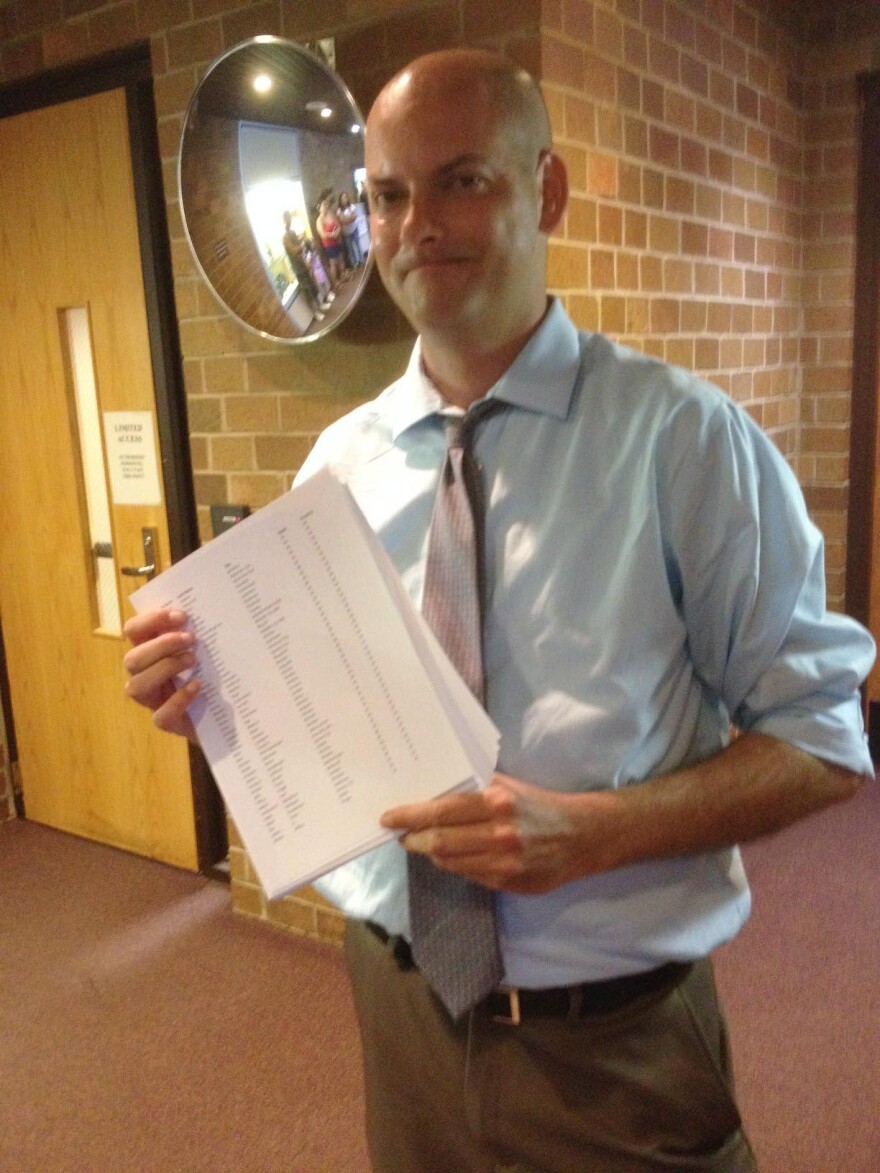A Garden City medical marijuana activist is making national news. Shona Banda's home was raided and her son was placed in protective custody—at least in part due to something the boy said during an anti-drug presentation at school. Heartland Health Monitor’s Bryan Thompson has more.
Police raided Shona Banda’s home in March after her 11-year-old son took issue with an anti-marijuana presentation at school. She’s now free on bond. But the 38-year-old is facing five criminal counts—four of them related to marijuana, and one for endangering a child.
Her attorney says Banda's life depends on using a type of oil she makes from marijuana to treat her Crohn’s disease. Finney County Attorney Susan Richmeier says using marijuana--even cannabis oil--is illegal in Kansas. The fact that she uses it for medicine doesn’t make any difference.
“My office can’t make a determination to prosecute someone based on medical reasons, or otherwise," Richmeier says. "We base all of our decisions for prosecution on whether or not it’s a violation of Kansas law.”
Police say they recovered more than a pound of marijuana from Banda’s home. Her attorney, Sarah Swain, says Banda never tried to hide what she was doing—from her children, or from local authorities.
“No one has ever disputed that Shona Banda had cannabis in her home," Swain says. "She herself, when she moved to Garden City, went to the Sheriff’s Department, gave them a copy of her book, and said, ‘This is who I am, and this is my story.’ She chose not to live in fear of criminal charges.”
Swain says Banda had openly told her children that she believed her cannabis oil was more effective and safer than most of the prescriptions she had been given for her Crohn’s disease.
“My understanding is that, in this discussion of the evils of marijuana that was taking place at school, her son simply said, ‘No, I disagree with what you’re saying about that plant,’ and things snowballed from there,” Swain says.
Swain questions the constitutionality of the way the information was gathered, the search warrant was prepared, and the eventual search of the house. But Richmeier says authorities had other evidence to go on.
“We had other resources, other than just that statement," she says. "And I can’t go into any specifics with regards to this particular case, but anytime there are concerns about the well-being of a child or that illegal activity is occurring we are bound by the law to obtain search warrants.”

Banda’s attorney says her client, if convicted of all charges, could be facing a sentence of up to 30 years in prison. Richmeier says that’s true in theory, but the most serious charge—distribution and possession of marijuana within 1,000 feet of a school—carries a maximum sentence of 17 years.
“That’s based on weight. Not all possession is based on weight, but the fact that it was within 1,000 feet of a school, that’s what makes the weight carry the Severity Level 1 punishment," Richmeier says.
Defense attorney Sarah Swain is concerned that if Banda goes to prison and can’t get the only treatment that has brought her relief from Crohn's disease, she will likely die. According to Swain, Banda has been without the cannabis oil since her home was raided, and her condition has worsened.
“It is medicine, and she has already lost a dramatic amount of weight since she has not been using it,” Swain said. “She has had to have oral surgery due to some infections in her mouth that were kept at bay when she was using cannabis oil, but have now come back. So, her health is not good, and I think it will only continue to deteriorate as this case drags on.”
Meanwhile, an online petition started by two of Banda's friends has picked up more than 140,000 electronic signatures asking that she be shown mercy. Prosecutor Susan Richmeier says Kansas law prescribes the range of options in sentencing, so Banda’s fate will lie with the judge—if she's found guilty.
Bryan Thompson is a reporter for Heartland Health Monitor.


